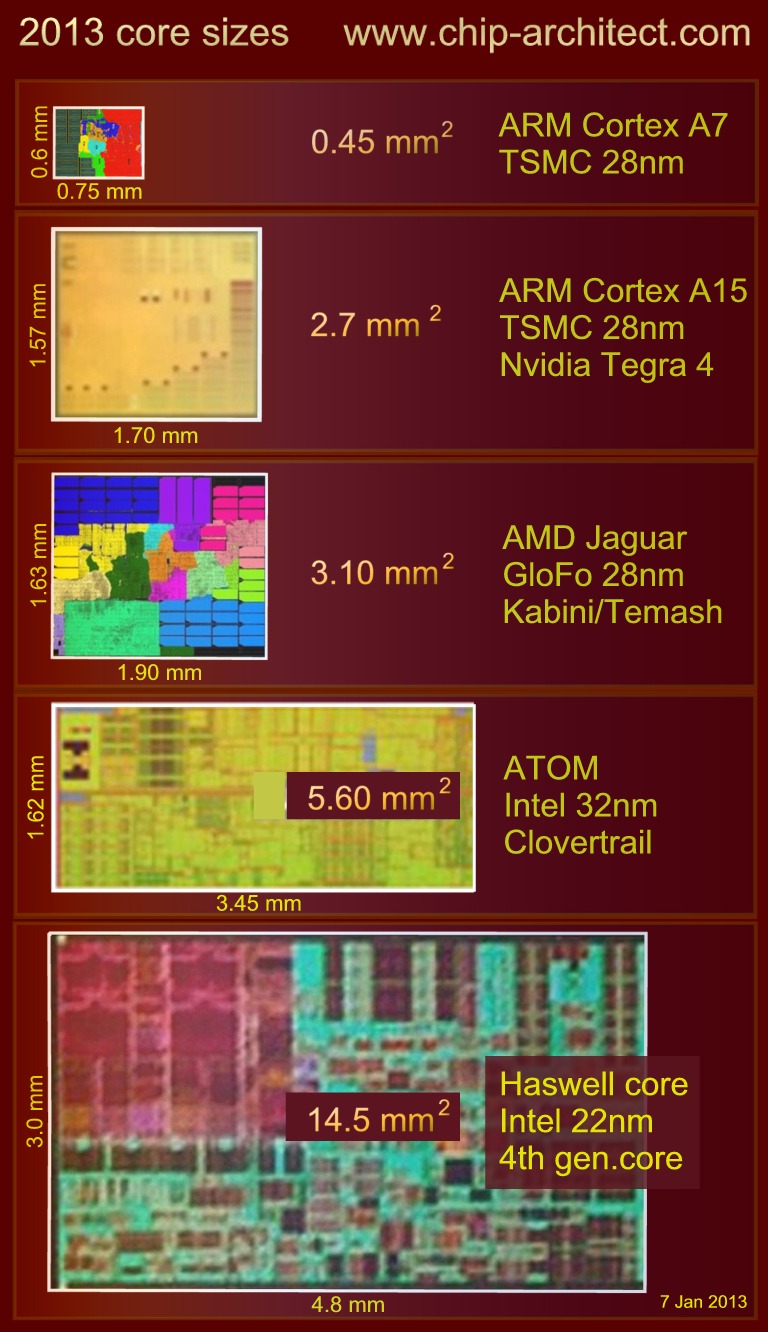ARM has the advantage right now, mainly because Intel hasn't been very serious in it's attempts to enter the low power market yet, with Atom always being a node or two behind their other chips.
However, now you have Intel pushing to make Atom a top priority, and Intel has a much larger R&D budget than it's competitors + a clear process advantage.
It'll be an interesting battle, but personally I'm expecting Intel to come out on top.
It's also worth noting that as cellphones/tablets get closer to desktops in terms of performance, people will start to expect to be able to run their desktop programs on their portable devices, and desktop programs are all designed for x86 ...



